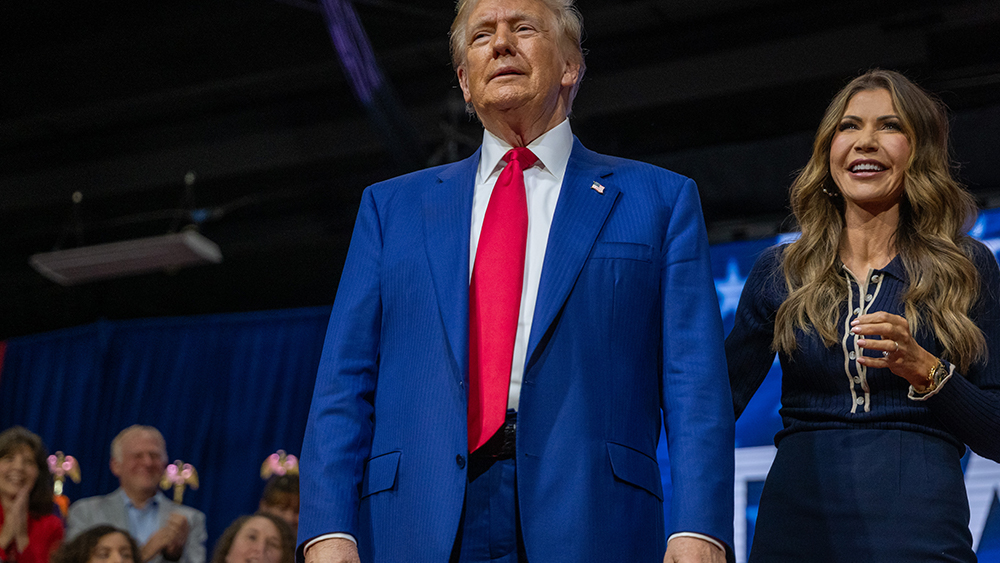
- President Donald Trump announced an additional 50% tariff on Chinese goods unless China withdraws its 34% counter-tariff, escalating the ongoing trade conflict.
- The Chinese Ministry of Commerce vowed to "fight to the end" and is preparing countermeasures, rejecting U.S. demands.
- Influential bloggers revealed Beijing’s potential retaliatory actions, including: higher tariffs on U.S. agricultural products (soybeans, sorghum); a ban on U.S. poultry imports and restrictions on service-sector trade; suspension of fentanyl cooperation and possible ban on American films; and investigations into intellectual property benefits for U.S. firms.
- Financial markets showed volatility, with concerns over impacts on U.S. farmers, Hollywood and global supply chains.
- Past trade tensions suggest potential for negotiations, but current escalations risk further economic disruption. The next steps will shape global trade dynamics.
In a significant escalation of the ongoing trade war, President Donald Trump threatened China with an additional 50% tariff on goods imported into the U.S. if Beijing did not withdraw its 34% counter-tariff. The Chinese Ministry of Commerce responded swiftly, vowing to take "countermeasures" and stating that it "will fight to the end" of the trade war. Two influential Chinese bloggers, Liu Hong and Ren Yi, have since leaked a set of potential countermeasures that Beijing is considering. These measures, if implemented, could have far-reaching implications for both countries and the global economy.
The tariff threat and China's response
On Monday, President Trump announced that the U.S. would impose an additional 50% tariff on Chinese goods unless Beijing withdrew its 34% counter-tariff. This move came as a response to China's earlier "reciprocal" tariffs, which were imposed in retaliation for Trump's initial round of tariffs. The Chinese Ministry of Commerce was quick to respond, stating that China would "never accept" the U.S. demands and would "fight to the end" to defend its interests.
Leaked countermeasures
Two top Chinese bloggers, Liu Hong, a senior editor at Xinhuanet, and Ren Yi, known by his social media handle Chairman Rabbit, have leaked a set of potential countermeasures that Beijing is considering. These measures, which are attributed to sources familiar with the matter, include:
- Significantly increase tariffs on U.S. agricultural products: China is considering significantly increasing tariffs on U.S. agricultural products such as soybeans and sorghum. This move could severely impact U.S. farmers, who have already been hit hard by the trade war.
- Prohibit the import of U.S. poultry meat: Citing concerns over avian influenza outbreaks in the U.S., China is considering banning the import of American poultry to ensure food safety for its citizens.
- Suspend China-U.S. cooperation on fentanyl: In response to the U.S. threat to impose another 50% tariff, China is considering suspending its cooperation with the U.S. on fentanyl-related issues. This move is particularly significant given the ongoing opioid crisis in the U.S.
- Countermeasures in the services trade sector: China is considering restricting U.S. companies from participating in procurement and limiting business cooperation, such as legal consulting. This could have a significant impact on U.S. service exports, which currently enjoy a trade surplus with China.
- Ban the import of American films: China is studying the possibility of reducing or even banning the import of American films. This could affect the U.S. film industry, which relies heavily on the Chinese market for revenue.
- Investigate intellectual property benefits of U.S. companies: China is considering investigating the benefits that U.S. companies have gained from intellectual property in China, potentially leading to legal actions and increased scrutiny.
Market reactions and economic implications
The leaked countermeasures have already had an impact on financial markets. According to Goldman analyst Shubham Ghosh, some headlines, including "Consumption boost, leadership onshore willing to front-load stimulus, PBOC vowing sufficient funding," helped stabilize Asian equity markets. However, the Hang Seng China Enterprises Index pared its advance to less than 1% as trading resumed after the mid-day break, indicating market uncertainty.
The potential measures could have significant economic implications. For instance, the U.S. agricultural sector, which has already been struggling, could face further challenges if China increases tariffs on soybeans and sorghum. Similarly, the U.S. film industry, which has been expanding its presence in China, could suffer if Beijing decides to ban American films.
Historical context and future prospects
The current trade war is part of a broader pattern of economic and political tensions between the U.S. and China. The relationship between the two countries has been strained since the early 2010s, with issues ranging from intellectual property theft to unfair trade practices. The Trump administration has been particularly vocal about these issues, leading to the imposition of tariffs and other trade restrictions.
However, the situation is not without precedent. In 2018, during the first major trade war between the U.S. and China, the Chinese Ministry of Commerce also vowed to "fight to the end." Despite the tough rhetoric, both sides eventually entered into talks, leading to the Phase One trade deal in January 2020. This historical context suggests that while the current tensions are high, there is still a possibility for negotiation and resolution.
Conclusion
The latest round of tariff threats and countermeasures highlights the deep-seated economic and political tensions between the U.S. and China. While the leaked countermeasures from Beijing are concerning, they also underscore the high stakes involved for both countries. As markets react and the global community watches, the coming days and weeks will be crucial in determining whether the two nations can find a path to de-escalation or if the trade war will continue to intensify. The outcome will have significant implications for the global economy and the balance of power between the world's two largest economies.
Sources include:
Please contact us for more information.













